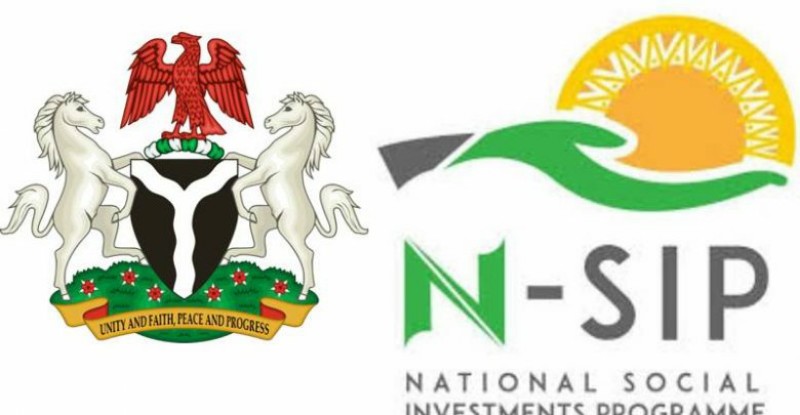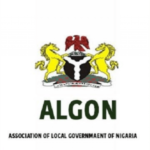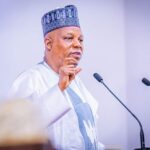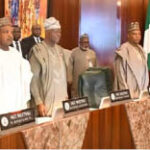The creation of the Ministry of Humanitarian Affairs, Disaster Management and Social Development by President Muhammadu Buhari in August 2019 saw the birth of the National Social Investment Programme (NSIP) under the leadership of its pioneer minister, Sadiya Umar Farouq.
NSIP, as a project that was created to change the lives of millions of Nigerians living in extreme poverty, upgrade their standard of living and improve the economy of the country, has gone a long way in achieving its objectives.
Undoubtedly, the National Social Investment Programme (NSIP) and indeed its baby, the National Social Register (NSR), is a living document that is still a ‘work in progress’.
Indeed the NSR represents the international best practice for targeting the poor and vulnerable people of any nation for the upliftment of their lives.
With the coming of President Tinubu to the helm of affairs of the country, the administration saw the need to tinker with the NSIP which has already impacted the lives of millions of Nigerians.
Most surprisingly, even the Nigerian Governors’ Forum (NGF) under the umbrella of the National Economic Council (NEC) talked about the existence and continuing utility of the National Social Register (NSR) of the Poor and Vulnerable Households (PVHHs) in Nigeria. The council even described it as one “lacking credibility”.
On July 20, NEC, presided over by Vice President Kashim Shettima, resolved to dump the National Social Register for lacking credibility.
Speaking to journalists after the NEC’s meeting, Chukwuma Soludo, the Governor of Anambra State, said the NEC agreed that states should develop their own registers using formal and informal means. One wonders which states was Governor Soludo talking about.
The NSR is the result of a decidedly deliberate, effective collaboration between the federal government the 36 states and the FCT that commenced with the signing of a Memorandum of Understanding between NASSCO and each of them. The NSR is an aggregate of the respective State Social Registers (SSRs) of the 37 entities.
The SSRs were each generated by respective State Operations Coordinating Units (SOCU) of National Social Safety Nets Coordinating Office (NASSCO) in all the states of the federation and the FCT, which are managed under the respective states’ ministries responsible for planning, and also manned by personnel drawn from the civil service bureaucracy of each state.
It is actually the various SOCU offices domiciled at the subnational level, through their respective state–level personnel that were deployed to carry out the task of identifying the PVHHs in the targeted communities at the selected local government areas, wards and communities that have carefully been identified and ranked.
This was done in conjunction with a multi–sectoral team at the LGA level by way of geographical or poverty targeting, using the poverty headcount generated from the National Bureau of Statistics, national Multidimensional Poverty Index (MPI) survey, and high–resolution poverty maps on satellite imagery.
It gives one serious concern that despite the trillions of naira spent on this programme so far, the extent of the multi-sectoral collaboration in arriving and creating a database of the poverty level of the country and list of beneficiaries, the NGF is raising the alarm that the register is not credible.
Towards actualising its determination to do away with this current register, Dr Betta Edu, the current Minister of Humanitarian Affairs and Poverty Alleviation, has flagged off the verification of names on the national social register in Lagos suburbs.
Edu had also promised to partner with states to verify all names on the register to reflect the citizens who are most vulnerable.
Looking like Betta Edu is on a war mission to dismantle everything under the NSIP, she has made many uncomplimentary comments about the programme and its ‘babies’ indicating that the country’s cherished NSR is facing extinction.
What the NSR and indeed the NSIP need most is improvements and not dumping or discarding. The NSR as it is today is 100 per cent credible.
A former Executive Secretary of NEITI and a journalist, Waziri Adio, has described the National Social Register, NSR, as ‘comprehensive and robust.’
He had said the process of putting the register together, the structure for gathering information in the register as well as the methodology used for the register, were comprehensive, robust and participatory.
Methinks that what VP Kashim Shetima’s NEC and Minister Betta Edu need to do with NSIP and NSR is reinvigoration, sustenance and continuity and not discredit it by leveraging on the foresight of former President Buhari in setting it up. No more, no less.
A solid policy foundation in NSIP for kicking poverty out of the country has been laid so all hands must be on deck to perfect it and not dump it and start afresh. This amounts to a waste of the country’s meagre resources.
NEC and Mrs Betta Edu must tread softly, softly and move this country forward since the NSR and indeed the NSIP have come a long way.
Musa, a public, social policy analyst, wrote from Area 11, Abuja

 Join Daily Trust WhatsApp Community For Quick Access To News and Happenings Around You.
Join Daily Trust WhatsApp Community For Quick Access To News and Happenings Around You.


